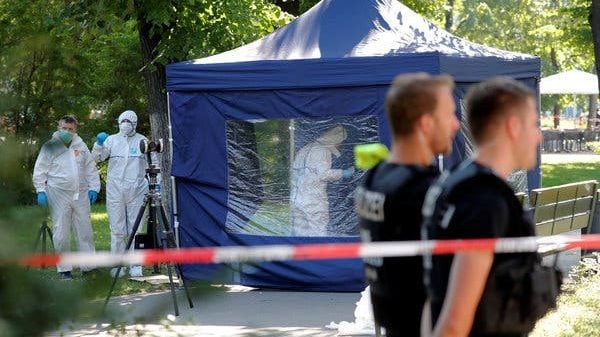A German court found today Russian citizen Vadim Krasikov, 56, guilty of murder of Zelimkhan Khangoshvili and sentenced him to life in prison, various western media outlets reported.
The court also said the Russian government ordered the murder of Khangoshvili, a Georgian citizen of Chechen descent, who was labeled as a terrorist by Moscow.
“In June 2019 at the latest, state organs of the central government of the Russian Federation took the decision to liquidate Tornike Khangoshvili in Berlin,” Reuters cited judge Olaf Arnoldi as saying.
The judge said the crime was a “professional operation” that could not have been carried out without local assistance in Berlin, according to the news agency. Arnoldi maintained that Krasikov had flown to Paris days before the murder, equipped with a fake passport, cash and traveled to Berlin from there.
After shooting Khangoshvili three times, Krasikov hid in a bush to trim his beard and change his attire to look like a tourist, a plan that was thwarted by the presence of witnesses according to the judge.
“Four children lost their father, two siblings their brother,” Reuters cited Arnoldi.
The ruling also bars Krasikov, who bore “particularly grave responsibility” from being entitled to parole after 15 years in prison, the Associated Press reported.
Khangoshvili (also known as Tornike Kavtarashvili), 40, was gunned down in broad daylight in Berlin’s Kleiner Tiergarten Park on August 23, 2019. Police arrested the Russian citizen in hot pursuit after the crime.
Prosecutors argued Krasikov was linked with the Russian Federal Security Service (FSB), and traveled to Germany under the alias of Vadim Solokov. The Russian citizen’s identity was finally confirmed by a witness from Ukraine, a brother-in-law of Krasikov who recalled conversations and encounters with the man.
The prosecution was however unable to find who exactly ordered the killing.
The defense had denied the prosecution’s accusations. In today’s trial, Krasikov maintained that he was actually Vadim Solokov, a 50-year-old civil engineer. He also denied any ties to the Russian government or the FSB, as reported by German news service Tagesschau.
Hailing from Georgia’s Pankisi Gorge, Khangoshvili participated in the Second Chechen War, as well as in the 2008 August Russo-Georgian War, fighting against the Russian forces. He survived an assassination attempt in Tbilisi in 2015 and fled to Germany afterward.
The killing has also stirred diplomatic tensions between the EU countries and Russia. In December 2019, Germany expelled two employees of the Russian Embassy in Berlin, accusing them of failing to cooperate with the inquiry.
Russian news agency Interfax cited Russian Ambassador to Germany, Sergei Nechaev as saying the ruling was a “biased, politically motivated decision that seriously aggravates the already difficult Russian-German relations.” The diplomat added the verdict – “an obvious unfriendly act” – will not be left without a response from Moscow.
The ruling into the Khangoshvili murder case comes amid ramped-up tensions between the Western governments and Moscow over the Russian military build-up near Ukraine. Against the backdrop, Germany has a new government, with Olaf Scholz and Annalena Baerbock taking the offices of the Chancellor and Foreign Minister, respectively, only a week ago on December 8. The latter has threatened Moscow with “massive consequences” if it violates Ukraine’s sovereignty.
The Georgian authorities have so far remained silent over the murder of the Georgian citizen.
This article was last updated at 17:20 on December 15.
Also Read:
- German Prosecution Demands Life Sentence for Main Suspect in Khangoshvili’s Murder
- Witness Confirms Identity of Main Suspect in Khangoshvili Murder Case
This post is also available in: ქართული (Georgian) Русский (Russian)

